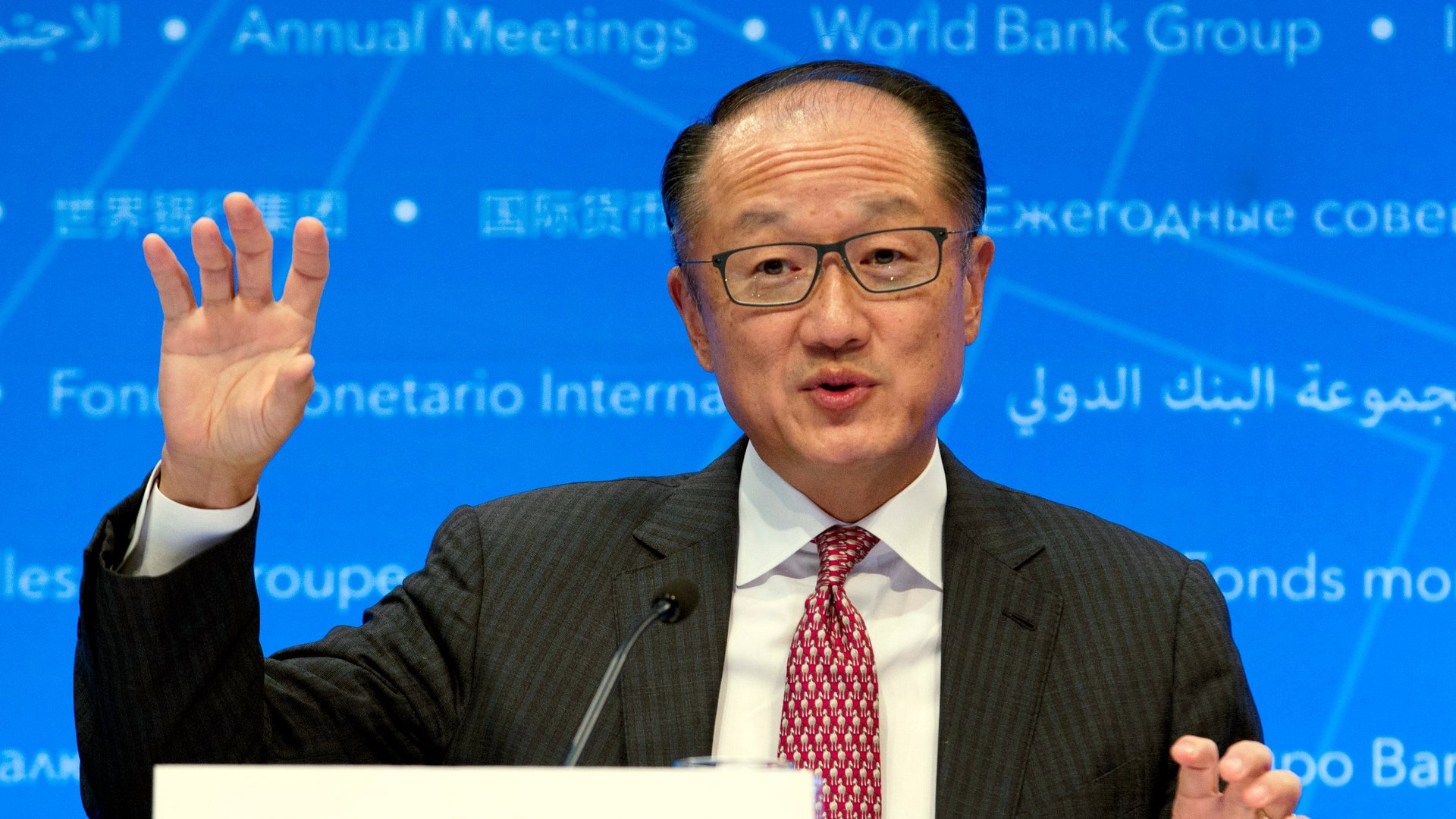World Bank president Jim Yong Kim is resigning
With three years left in his current term, World Bank president Jim Yong Kim announced he will resign on Feb. 1 after six years in the role. Immediately after his departure, he will “join a firm and focus on increasing infrastructure investments in developing countries,” the World Bank said, promising that more details would be announced soon.


With three years left in his current term, World Bank president Jim Yong Kim announced he will resign on Feb. 1 after six years in the role. Immediately after his departure, he will “join a firm and focus on increasing infrastructure investments in developing countries,” the World Bank said, promising that more details would be announced soon.
This sudden resignation plunges the institution into a state of doubt: not just who its next leader will be, but how they will be chosen. For decades, the White House has chosen the World Bank president—but US president Donald Trump’s well-publicized skepticism of multilateral institutions may make the board hostile to his choices.
Kim was put forward for the role in 2012 by US president Barack Obama, bucking expectations. At the time, pundits favored Harvard economist and former US presidential adviser Larry Summers, and gave somewhat lower odds to former Turkish finance minister Kemal Dervis and Ngozi Okonjo-Iweala, the former foreign minister of Nigeria.
Unlike every other World Bank president, Kim, who was sometimes described as the World Bank’s “biggest critic,” did not come from a traditional finance or economics background. Instead, he trained as an MD and anthropologist at Harvard, before working first for the World Health Organization and then for Harvard Medical School. In 2009, he became the president of Dartmouth College—and faced opprobrium when he left just two and a half years later to join the World Bank.
Kim was given a second five-year term in 2016. The speed of his reappointment led many to conclude that the bank was trying to avoid a Trump-picked appointee.
Technically, at least, there is a formal selection process for the presidency of the World Bank, though the US has for some time had an unwritten “right” to its own pick. (The managing director of the International Monetary Fund, by contrast, is typically chosen by European powers.)
In 2015, Kim told Quartz that he anticipated future nominees would go through the same sort of campaign that he had done, where he visited 22 countries in 14 days ahead of a vote. “I know for sure that there will always be a campaign now, there will always be other candidates,” he said. He was less certain on whether the president would always be an American, however. “I think that you will never again see an IMF or a World Bank election without very strong contention, coming especially from the developing world,” he said.
According to the World Bank, Kim now also plans to rejoin the board of Partners In Health, the global health nonprofit he co-founded more than 30 years ago.
Kristalina Georgieva, the World Bank’s chief executive officer, will serve as interim president, until a permanent replacement is named.